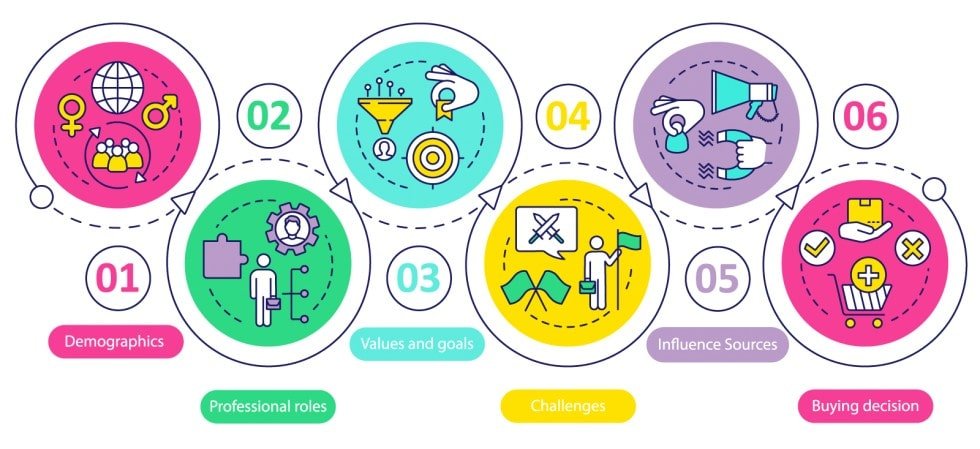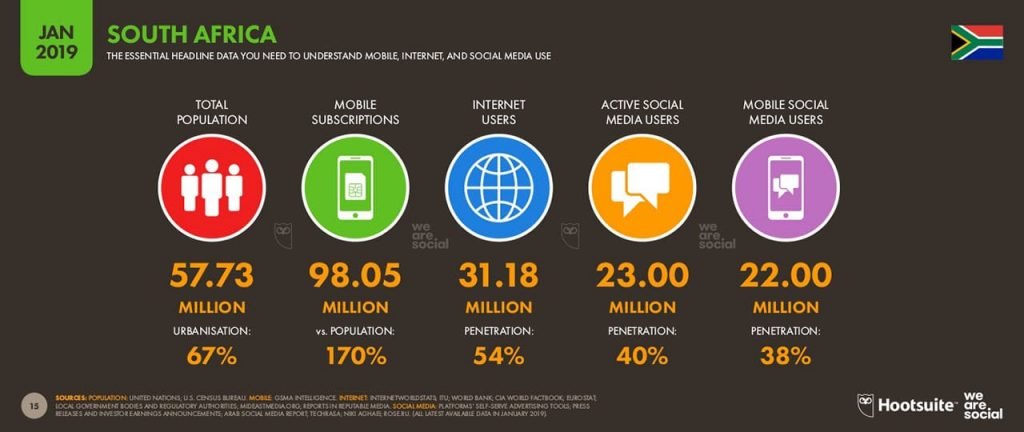You’re the owner of a business (or the marketing maven for one) and you’re slightly paralyzed by gloomy forecasts and cash-flow worries.
Yet, you know ‘sitting duck’ is not a great look for your brand.
An economic downturn, especially the severe one we face today, will take its toll. However, it’s also fertile ground for businesses to reassert their purpose and work harder to win hearts.
To do this, you need an emphatic brand story and valuable content as your core marketing tools.
“There is opportunity, dramatic opportunity, in the chaos — and somebody in your space is going to grow a whole bunch of market share during these next few weeks and months. It may as well be you.” – Marcus Sheridan
Let’s jump into the 7 ways authentic, fascinating content marketing will keep your business afloat in 2020.
(As a small bonus, you’ll also lay the groundwork for a rock-solid brand and grow an adoring customer base – two things you’ll need to thrive in the next downturn.)
1. A content strategy asks the hard questions and strengthens your offering
Small business in Africa is not for sissies. Especially not in 2020. But there is also no place like Africa for a business owner who is open-minded and prepared to roll with the economic punches.
One of the most valuable things you can do right now, is to step back and take a hard look at your business.
- Does your offering still solve your audience’s problem, today?
- How has the current crises affected their needs?
- Has your audience’s changing needs revealed new opportunities?
- Do you have a clear picture of their current reality? This pressure-cooker economy makes people look at things very differently. It also means that your audience’s values and the way they make decisions are constantly shifting.
- Does your product or service realistically help them, save them time, or make life easier for them?
A grounded content marketing strategy will answer these questions for you. It will give you a heads up to self-correct and bolster your offering, so that your value can be built effortlessly into your marketing.
To cut through the current online clutter, you will need to pitch your message in an unmissable voice with perfectly-on-target, deeply meaningful content. And you can only do that when you have a clear, fleshed-out customer persona, based on real insights about the actual people you solve problems for.
Clearly defining customer persona’s is a fundamental part of preparing your brand’s unique content strategy. In fact, 82% of companies say that personas have helped them toughen up their value proposition.

WATCH: How to prepare for the big questions that will uncover your brand story
2. Content is your only shot at outplaying bigger competitors
The big players in your industry are always intimidating. “They have armies of marketers behind them,” sniggers your self-doubt. “They’ve been in the digital game much longer. Our marketing budget is a drop to their bucket.”
But content marketing, ironically, can be a potent equalizer. Its power doesn’t lie in hurling volumes of content at the masses, but in creating spot-on information for a very specific group of people. You’d be surprised at how many big brands get this wrong.
Content that works also requires a unique brand voice. And where large corporates spend millions to design their brand personality, small businesses have this built in. They are a smaller community of many passionate people, and by putting their opinions out into the world, the brand automatically finds its voice.
The third advantage that small businesses have over bulkier enterprises, is a more direct relationship with their customers. This means small businesses already have a good idea about the kind of information that will engage and serve their customers best.
Let’s take an example. When the 2008 recession came knocking, River Pools knew they were in trouble. Whilst we South Africans often can’t live without our swimming pools, indoor fibreglass pools are a definite non-essential in the US. How could this small, niche business save itself at a time when large competitors had reserves and momentum in their favour? By using what the owner had: deeply specialized knowledge.
He knew his typical customer’s interests and fears intimately and set out to answer every imaginable question they might ask. Today, his website commands more traffic than any of its big-brand competitors. One single post, How much does it cost to install a fiberglass pool, proved indispensable to customers who constantly had to beg for pricing. It bagged the company $2.5 million in sales (go ahead, that’s one rand conversion that’s refreshingly motivating).
When vying against bigger fish, River Pools also gets another content marketing principle right: do only a few things, but do them well.
In a 2013 interview the owner, Marcus Sheridan, said they don’t really use social media: “We have found there is a much higher return on investment when we focus our time producing more content on the site.”
A big part of the online offensive is knowing which channels and formats work best for your products and your audience. Focus your available time and budget there, instead of diluting your story by trying to be everywhere and attempting to do everything. This is good news at a time when every cent counts.
READ: What small business owners can learn about content marketing from this 2008 recession survivor
3. Exceptional content breathes life into all your digital marketing efforts
Over 51% of people find new brands or products on their cell phones. 46% act after they see a video ad. 46.5% of South African consumers bought something after seeing a positive comment on social media. And, more specifically for small businesses, digital marketing ad campaigns are 20 times more effective when they are location specific.
These were the stats before the COVID-19 pandemic, before the lockdown binge caused a massive upswing in the consumption of all things digital.

By now we all know that digital marketing is not merely optional. Today, most businesses are asking where to start. And South Africa’s almost over-abundance of digital marketing agencies are ready with answers, promising the Facebook-sun and the AdWords-moon for a healthy chunk of your marketing budget.
Pay-per-click, search engine optimization, boosted posts, high clickthrough rates, and other disjointed phrases get tossed around with vigour. Once you jump in, it’s easy to get lulled by nice-looking reports. However, do they tie back to actual leads and brand growth?
Instead, you should start your digital journey with a content marketing strategy and get the basics right from the get-go. Ask, explore, interview, research:
- Who am I speaking to?
- Where and how do they really spend time online?
- What will fascinate them, guide them, make them trust and talk about you?
These answers will clearly show you where and how to spend your already stressed budget. You will attract and build relationships with actual future customers without wasting money on shot-in-the-dark campaigns based on guesswork.
READ: 5 ways content marketing trumps the old school and digital marketing channels
4. Content is how you bottle trust
In 2018, Accenture Strategy’s Global Consumer Pulse report found that lack of trust costs global brands $2.5 trillion per year. Business thought-leaders agree whole-heartedly:
“What clients need most in tough times is a provider they can trust, an ally rather than someone simply looking out for their own bottom line,” says Mel Sauvé, president of Global Growth.
This is especially true of South African consumers in the economic fallout of the coronavirus lockdown.
Of course, it’s crucial to focus attention on getting new customers. But off-brand, insincere campaigns, or diluted service delivery, can cost you the customers you already have.
As an economy slows, competitors often turn into poachers, and highly price-sensitive customers will be tempted. If the trust is not there between you and your customers, moving brands will be a no brainer for them.
How does content build this trust? It puts your customer at the heart of your business. It asks questions about their needs, rather than your own business goals.
When you invest time and money to create content that helps, inspires, or entertains, without demanding something in return, it shows.
And once they trust you, they are ready to listen to how you can help them.
Right now, few businesses have the time, patience, or value-driven mindset to do content right. It’s your opportunity to really shine.
WATCH: Fear to Growth: Our mental journey during covid-19
5. A content strategy protects you from brand-harming knee-jerks
What are the ever-green ingredients to a successful small business in South Africa?
- Solid preparation.
- Small, well-planned steps.
- Consistency.
- Resilience.
- Taking a long-term view.
These same things also define a great content strategy. Who would have thought, right?
However, a shrinking economy brings angst. Business owners scramble for quick fixes and short cuts. This behaviour kills brands.
Why is a well-loved, established brand so important? Turns out, it is the antidote to a tough economy.
In 2019, the BrandZ™ Top 30 Most Valuable South African Brands outperformed the JSE Top40 Index, which fell 20% in dollar terms over the same time.
“Strong brands tend to emerge from economic downturns more quickly,” says Ivan Moroke, CEO South Africa, of the Insights Division at Kantar, the company that conducted the BrandZ™ research. “While we can’t control the winds of change, we can control the sails.”
The lesson? Stay the course. Stay consistent. Stay relevant with the right content, at the right time. Your customers will notice, and they will remember who stood out in the rough times.
WATCH: How to Market in a Post Lockdown Economy
6. Content pumps extra mileage into sputtering marketing budgets
“Now, all of a sudden, companies are in financial pain. But still, they’re going to be cutting marketing departments and things like content production or video production. This is going to hurt the organization’s ability to keep any momentum going once things get back to normal.” – Marcus Sheridan
Stay visible at a time when your customers most need you. There is tremendous opportunity in the gap left by business that are not keeping up with their marketing and content. Sadly, those that did not make it through the initial months of the downturn clear the field for companies with a better, customer-focussed strategy to capitalize.
However, slimming down your marketing might be unavoidable. You can offset this by making sure that each rand spent works as hard for your brand as possible.
How do you do this?
- Find and list the best digital marketing platforms and formats. These should work for both your audience and your product or service.
- Rank them by the best ROI – pay attention to how you articulate your ‘results’; you should clearly see how the data feed back to your business goals.
- See how many can be covered by your available marketing budget.
- Focus only on these and do them exceptionally well.
- Keep your eye on the ball: measure and adjust constantly.
Be sure to include a good content strategy in your list: it generates over three times as many leads as outbound marketing and costs 62% less.
This is because it’s highly targeted and provides real value. Each piece of ever-green content will be discovered and enjoyed on the internet for years to come.
READ: What you will pay for content marketing and how long it will take to work
Social media landed on South Africa’s digital shores with bold whispers of a marketing prize so rich, traditional channels would be forever left in the dust. It reminded of a gold rush.
More than a decade later, this prophesy has not come true for most local small businesses.
We’ve all gone through the drill: claim your stake on the Big 5 social media platforms: Facebook, Instagram, LinkedIn, YouTube and Twitter. Try your luck by going through the motions of posting and boosting and commenting. Rinse. Repeat.
But this process ignores the most essential skills of any good prospector: know what you’re after and understand its characteristics.
The real gold lies not in your likes or retweets, but in the “heart currency” you unlock when you really hit the spot for your audience.
Your content marketing research will not only tell you more about your customers and what content to create, but also how to give it the right wings on social media.
If you are feeling a bit beaten and wondering, “Is the gold rush over?”, consider this:
Before the pandemic, it was predicted that more than 40% of South Africans would be using social media in 2020, up 5 million from 2018. In 2019, we spent on average 2 hours 48 minutes per day on social media, beating the global average. We had, on average, 8 social media accounts. 38% of us said they use social media to find content and entertaining media. 31% used it to find, research or buy products.
This was before the lockdown. Need we say more?

We leave you with a few final questions to find out if content marketing is a good fit for your business:
- Are you in it for the long haul?
- Do you value a trusting, long-term relationship with your customers?
- Can’t wait to discover your brand story and make it work for you?
Yes?
Then we are your people.
WANNA READ MORE?
Content Marketing: The silver bullet that is missing from your business’ downturn marketing plan
What you will pay for content marketing and how long it will take to work
5 ways content marketing trumps the old school and digital marketing channels
HOW ABOUT A QUICK VIDEO?
The perfect content mix for your content marketing strategy
How to prepare for the big questions that will uncover your brand story